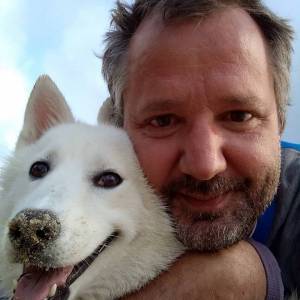Storytelling (1)
1
One of the easier ways of telling a story through photography is shooting old things. Time has a way of inscribing stories into a face, a building or even a toy. In Aristotle’s definition of a story (a story needs a beginning, a middle, and an end), the ruin of a building occupies the “end” spot: its best days are gone, its story already happened. It’s history.
2
Unfortunately, as keibr pointed out in his comment yesterday, a picture can meet only one of Aristotle’s requirements: It shows the beginning, middle or end of a story. Imagination fills in the others. But how does it do this? You have to read the photograph as you would read a text. Or, as Umberto Eco used to say: You need to read the signs. What clues to the subject’s past do you find in the picture?
3
Today’s blip shows a building. One of its doors is walled up. The other door is locked. Its paint and plaster are falling off, and part of the lettering looks like it has been bitten off. The lettering itself informs that this building is a bar, a “central bar”, to be more specific. But all the signs so far point to the fact that it doesn’t serve its original purpose anymore.
4
What can we surmise about its past? The name suggests that the bar was located in the center of town. It’s easy to imagine the doors wide open, people coming in and sitting down at one of the simple wooden tables and ordering a shot of cachaça: a meeting point in the middle of the town for men and women, some of them unemployed, others exhausted from work on surrounding farms and plantations. But then something dramatic must have happened.
5
The story this picture tells seems straightforward: A bar, bustling with people in its golden years, is abandoned by its clients, and is forced to shut down. It’s the circle of life: Something is born, lives and dies. A simple story, according to Aristotle, with a foreseeable end. But the name of the bar hints at another possibility, that would make this into a “complex” story with an unexpected finale: “Central Bar” had to close its doors because, as the town grew, the center moved somewhere else.

Comments
Sign in or get an account to comment.


